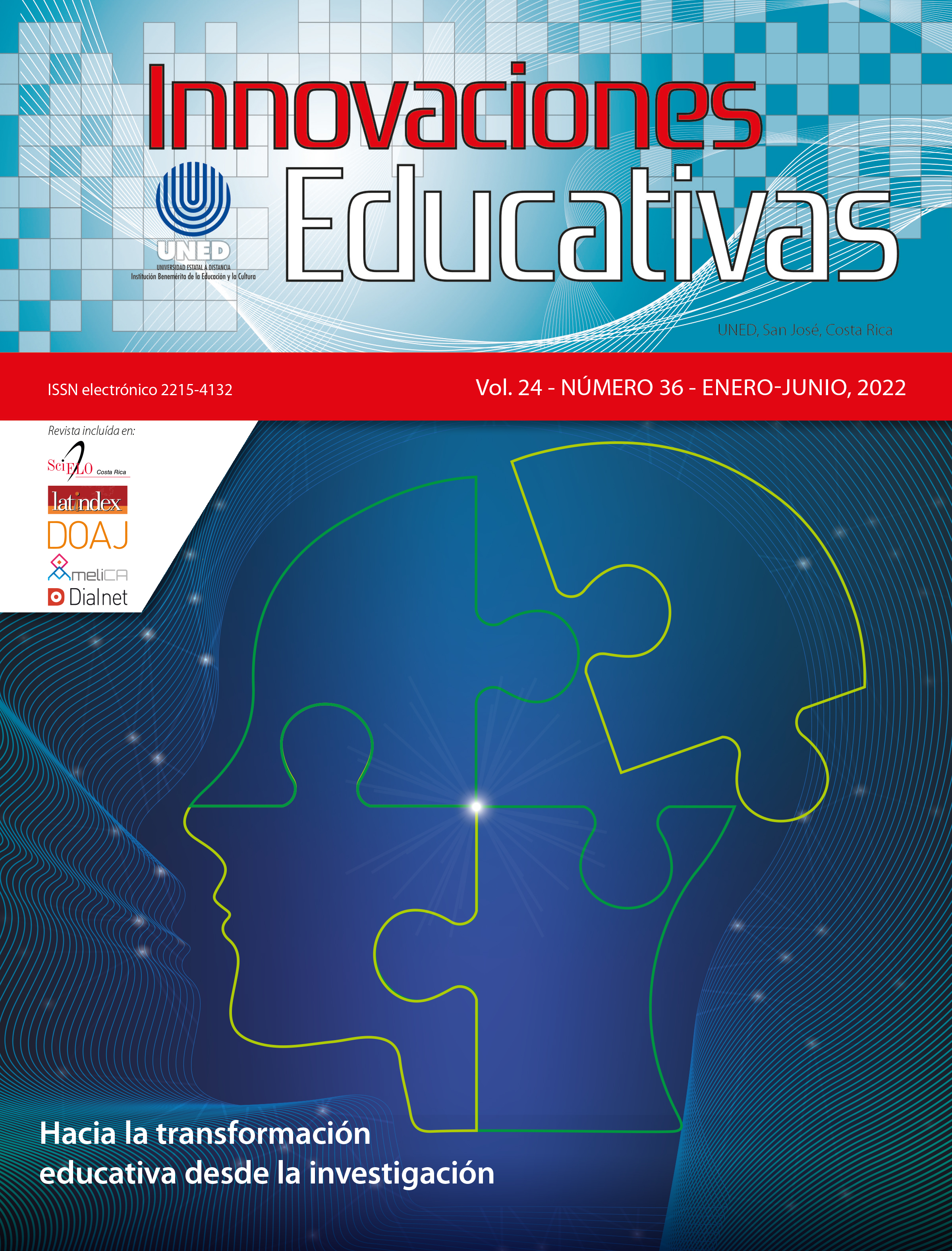Interculturality: an epistemological response to managing the Non-Formal Education administration cycle in five non-formal educational spaces with migrant people
DOI:
https://doi.org/10.22458/ie.v24i36.3917Keywords:
interculturality, non-formal education, education management, epistemology, learning process, cultural diversityAbstract
This article presents the main findings of a research carried out with a qualitative approach, presented as a final graduation work, which defines its bases and recognizes its scope in a theoretical construction on the contributions of interculturality in non-formal educational processes in which migrants participate. Its development was based on the theme of interculturality as a liberating phenomenon from the “threat of being different” capable of transforming Non-Formal Education (NFE) and its management into an opportunity for learning and freedom. Through the triangulation of research techniques (in-depth interviews, questionnaires, non-participatory observations, and document research), data and sources, working from the perspective of the five participating organizations: Alianza VenCR, Casas de la Alegría, SEPROJOVEN, Fundación Mujer y Cenderos- all of them located in Costa Rica. Among the findings of the study, we have that interculturality is the epistemic response to the various processes of NFE carried out in organizations. We concluded that NFE, conceived from the point of view of interculturality, has a thematic and methodological scope that generates learning and knowledge from other worldviews, frontlines of knowledge, and perspectives.
References
ACNUR. (2020). El ACNUR en Costa Rica. Recuperado de https://www.acnur.org/costa-rica.html
Cenderos. (2019). Informe Final. Escuela itinerante de comunicación popular. Costa Rica.
Díaz, M. (2010). Claves epistemológicas de la metodología feminista para la investigación social en la educación no formal (Tesis de grado). Universidad de Costa Rica, San José, Costa Rica.
Elizalde, A. (2010). Navegar en la incertidumbre: El desafío de seguir siendo humano en un mundo sin certeza. Colombia: UNIMINUTO.
Gómez, M. (1998). Elementos de estadística descriptiva. Costa Rica: EUNED
Hernández, R., Fernández, C. y Baptista, P. (2014). Metodología de la investigación. México: McGraw-Hill.
Hidalgo, V. (2005). Cultura, multiculturalidad, interculturalidad y transculturalidad: Evolución de un término. Universitas tarraconensis: Revista de ciències de l'educació, (1), 73-84. Recuperado de http://aularedim.net/wp-content/uploads/cultura_multiculturalidad.pdf
INEC. (2011). Censo. 2011. Población total nacida en el extranjero por provincia de residencia actual, según país de nacimiento y sexo. X Censo Nacional de Población y VI de Vivienda 2011. Recuperado de http://www.inec.cr/poblacion/migracion
Ministerio de Educación y Cultura República Oriental del Uruguay (2006). Educación no formal: fundamentos para una política educativa. Recuperado de https://www.fceia.unr.edu.ar/geii/maestria/TEMPORETTI/EducaNoFormal/Educaci%C3%B3n%20NO%20FORMAL_Dossier%20Uruguay.pdf
Najmanovich, D. (2009). Educar y aprender: escenarios y paradigmas. Propuesta Educativa, 2(32). Recuperado de https://www.redalyc.org/pdf/4030/403041704008.pdf
OIM. (2018). La OIM y el Ministerio de Educación Pública de Costa Rica firman Plan Nacional de Trabajo para promover la educación sin discriminación a las personas migrantes. Recuperado de https://costarica.iom.int/news/la-oim-y-el-ministerio-de-educaci%C3%B3n-p%C3%BAblica-de-costa-rica-firman-plan-nacional-de-trabajo-para
ONU. (2018). Migración. Recuperado de https://www.un.org/es/sections/issues-depth/migration/index.html
RAE. (2014). Diccionario de la lengua española. Recuperado de https://dle.rae.es
SICA. (2018). Actualización en la educación inicial de educadores de Centroamérica. Recuperado de https://ceccsica.info/sites/default/files/docs/Informe%20CECC%20SICA-Formacio%C3%ACn%20docente%20inicial.pdf
Úcar, X. (2008). La educación y la pedagogía como disciplinas y profesiones de lo social. A página da educação, (181) Recuperado de https://www.apagina.pt/?aba=7&cat=181&doc=12715&mid=2
UNESCO. (2019). Migración, desplazamiento y educación: Construyendo puentes, no muros. (Informe de Seguimiento de la Educación en el Mundo, 2019). Recuperado de https://unesdoc.unesco.org/ark:/48223/pf0000367436/PDF/367436spa.pdf.multi

